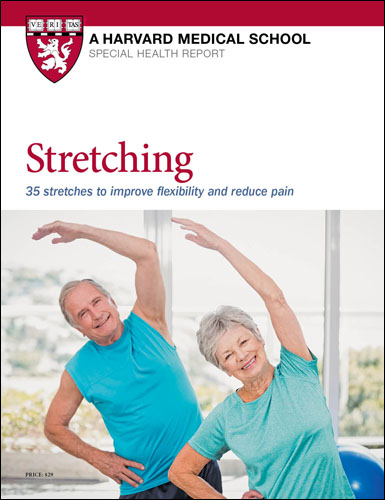When back pain strikes, you may think the best way to get relief is to sit still or lie down until the pain goes away. But we now know exercise can be key to treating back pain. In fact, thanks to the pioneering work of back pain researchers, effective treatment has undergone a sea change.
That’s why the experts at Harvard Medical School created Back Pain: Finding solutions for your aching back. This report reviews common types of back problems and the treatments that are most likely to bring you relief. For example, you’ll discover:
- 3 symptoms that mean your pain is probably caused by a herniated disc
- why men are more likely to suffer from disc problems and need surgery
- the type of back pain that can come from being out of shape
- why uncovering the cause of back pain can be so difficult
- if opioid pain relievers can ever be used safely
- the best way to prevent repeat episodes of back pain.
You’ll get a detailed overview of how your back is put together and the role your vertebrae, discs, muscles, nerves, and more play in helping you to twist, turn, bend, stand, walk, run, and lift. Knowing this information makes it easier for you to understand:
- the reason your abdominal muscles are so important to your lower back
- why MRIs and x-rays are considered overused when it comes to most back pain
- why the best approach to back pain is “wait and see” unless you have a red-flag symptom
- “just-in-case-tests” that could lead to unnecessary surgeries
- why 90% of people with sciatica or herniated discs will recover on their own within 6 months.
And this is just a fraction of the important, pain-relieving, back-pain-preventing information you’ll find in this report. You’ll see:
- the type of compress that helps promote healing
- why you don’t want to spend too much time in bed after a back injury
- 7 crucial questions to help decide if you need surgery
- how to tell if a firm mattress is causing your back pain
- how lack of exercise can trigger back pain
- 9 ways to take pressure off your back
- and so much more.
This report was prepared by the editors of Harvard Health Publishing in consultation with Jeffrey N. Katz, M.D., M.Sc., Professor of Medicine and Orthopedic Surgery, Harvard Medical School; Vice Chair for Research, Department of Orthopedic Surgery, Brigham and Women’s Hospital. 53 pages. (2025)











.jpg)

